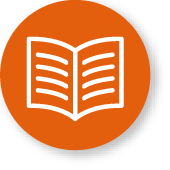RADx-UP CDCC now has funded 39 Community Collaboration Mini-Grants across 25 states serving 14 distinct, NIH-defined, underserved and vulnerable populations. These mini-grants provide up to $50,000 in funding for community organizations and are intended to help increase capacity for COVID-19 testing and decrease the spread of COVID-19. Awardees use these funds to increase training, education, communication, information, and capacity-building related to COVID-19 testing and vaccination.
The next deadline to submit an application is September 16, 2022. Read more about the program and how to apply here.
Read more about the projects who were recently awarded.
The project Hazte la Prueba: Testing for COVID within Indiana's Latinx Population, a collaboration of three community-based partner organizations led by The Learning Network of Clinton County, will increase education and awareness of COVID-19 testing and vaccination in Spanish by establishing a bilingual call center in Clinton County, Indiana. They will also maintain an evening and weekend testing and vaccination site serving adults whose working hours don’t allow them to access these services during the current hours of operation.
We Got Us partnered with Housing = Health on a joint initiative to mitigate COVID-19 infection and spread within the homeless population living in the Mass and Cass neighborhood, an encampment of unhoused people in the city of Boston, for the project Providing Access to COVID-19 Testing and Information for People Experiencing Homelessness. They will provide COVID-19 testing, health education, food, phones, personal protective equipment (PPE), and other supplies.
The project Community-Based Approaches Addressing Intersectionality of HIV and COVID-19 in Communities at Risk is a collaborative effort of Pamoja Circle Inc., Morehouse School of Medicine PRC, Georgia CEAL, and the Augusta University Hospital. The collaborators will develop a strategy for engaging individuals living with HIV/AIDS in the Central Savanah River Area of Georgia after identifying barriers to COVID-19 testing and vaccination through listening sessions with both the individuals living with HIV/AIDS and the healthcare providers who serve them.
El Pueblo will address the COVID-19 outreach and education gap for Latinx youth and Latinx women of childbearing age through the project Házte la Prueba by increasing access to self-testing kits and education. They will train young and adult Latinx community leaders to engage with the community through community events and health fairs in 10 North Carolina counties with significant rural areas. As part of their education campaigns, they will create culturally and linguistically appropriate social media messages.
The InterFaith Health Clinic’s will increase capacity for COVID-19 testing among the medically uninsured and other underserved populations in Tennessee in the project Improved Access to COVID-19 Testing for the Uninsured, Underserved, & Other People At-Risk for COVID-19. This will be achieved through thrice-weekly COVID-19 testing clinics that require no appointment and no advance registration. In addition to providing no-appointment-necessary COVID testing clinics three times per week, this project will engage the community in COVID- 19 vaccine education and efforts to encourage community members to seek testing.
The Knights and Orchids Society’s (TKO) FAITH: COVID Safe program will partner with community stakeholders to create materials designed to increase access to information about and testing and diagnosis for COVID-19 among transgender, gender non-conforming, non-binary and lesbian, gay, bisexual, and queer people of color in the South. TKO will give out COVID-19 self-test kits and share information about the COVID-19 virus, testing, quarantine recommendations, and prevention methods.
Shades of Life Labs’s project: Does increasing access to COVID-19 Diagnostic testing and education for the underserved, rural underserved, low-income, and ethnic minorities slow the spread of COVID-19 and decrease the incidents of hospitalizations and death? will provide diagnostic testing and education to reduce the impact of COVID-19 among the underserved, low-income, rural, and ethnic minorities in Hampton Roads, Virginia. They will do this by partnering with community groups to provide education, COVID-19 diagnostic testing, and COVID-19 vaccinations to homebound and otherwise inaccessible populations.
White House Clinics - Drive-Up Community COVID-19 Testing is a project that will extend existing drive-up community COVID-19 testing efforts across rural Kentucky through nine community health centers called White House Clinics (WHC) by providing tests at no cost to whoever needs them. WHC will also perform testing onsite for community partners including local factories, senior living facilities, long-term recovery centers, and correctional facilities.
St. Mary’s Health Clinics (SMHC) project, COVID Services for Spanish-speaking Immigrants, is a collaboration with the Mexican Consulate in St. Paul, Minnesota, to provide testing services and follow-up engagement about test results. The program will promote the benefits of COVID-19 testing, build an understanding of the most current set of COVID prevention guidelines, and risks and effects of infection and transmission in an effort to demystify and destigmatize factually incorrect beliefs about COVID screening, testing, and contact tracing that create barriers to their use.
For the UCC COVID-19 Testing Initiative, United Community Corporation will bringCOVID-19testingto low-income individuals and families, as well as people experiencing homelessness, across Essex County, New Jersey. This homeless shelter in Newark will train staff for COVID-19 testing, provide COVID-19 testing materials, and transport the tests throughout Essex County to increase testing accessibility.
In the Formerly Incarcerated People Justice Impacted Families (FIPJIF) COVID-19 project, the Reaching, and Education for Community Hope Foundation (RECH) will engage, educate, and provide resources for COVID-19 testing for justice-impacted individuals and their families through community outreach efforts led by formerly incarcerated people. RECH will partner with other service organizations in five Mississippi counties and offer support to adults and juveniles returning from county, state, and federal penal institutions, as well as their families. RECH will provide educational information, masks and rapid tests.
Mano Amiga’s project Fuera Con El Virus: Increasing COVID-19 testing in Central Texas will use population-specific strategies to reach groups in rural Texas between San Antonio and Austin such as immigrants, non-English speakers, those impacted by incarceration, and low-income neighbors. Activities will include linguistically and culturally responsive education to testing and vaccine outreach initiatives through door-to-door canvassing with community organizations; connecting residents with existing opportunities to be vaccinated and tested; and organizing community-led walk-up clinics and town halls.
Asian Media Access will reach Limited English Proficiency (LEP) Asian Pacific Minnesotans with culturally relevant and linguistically appropriate community engagement activities in their Stand Up Participate (SUP) Project. SUP Project will share culturally responsive strategies to increase community understanding of COVID-19 testing, case interviews, and contact tracing to encourage community members to get tested as appropriate and work with State COVID-19 team members to share information and be connected to resources.
Through their project, COVID-19 Community Education Initiative, Restore, Incorporated in Fairbanks, Alaska, will provide COVID education and testing to individuals struggling with substance use and mental health disorders. They will augment their behavioral health care, substance abuse, and recovery support services to provide COVID-19 education and testing resources to the community to offset the impacts of the pandemic and make education and testing accessible and relevant.
reNOUNce deNOUNce Gang Intervention Program’s project Combating the Spread of COVID-19 in Our Youth in the City of Cleveland will target underserved youth in Cleveland, Ohio. They will distribute test kits and educational brochures in communities with youth populations at higher risk for joining gangs.
Thai Community Development Center’s (Thai CDC) project Thai CDC COVID Aid, Rapid Response/Relief, and Emergency Services (Thai CDC CARES) will hold COVID-19 testing and vaccination clinics and increase tech literacy in Los Angeles, California. They will develop and translate public health messaging into Thai to increase access to public health information. The project will engage with the Thai community and distribute PPE at gathering places such as temples, grocery stores, farmers’ markets, and Thai service organizations.
SHARE

Media Archive
This is a short description of the Media Archive subsection of the site.

